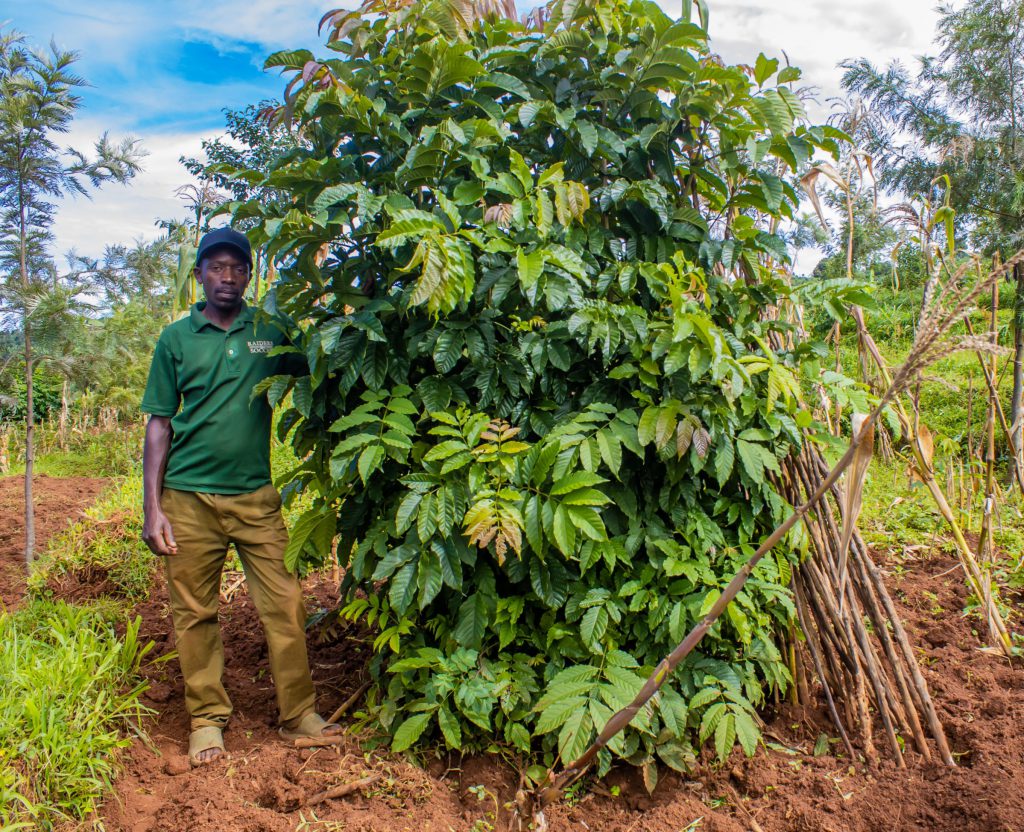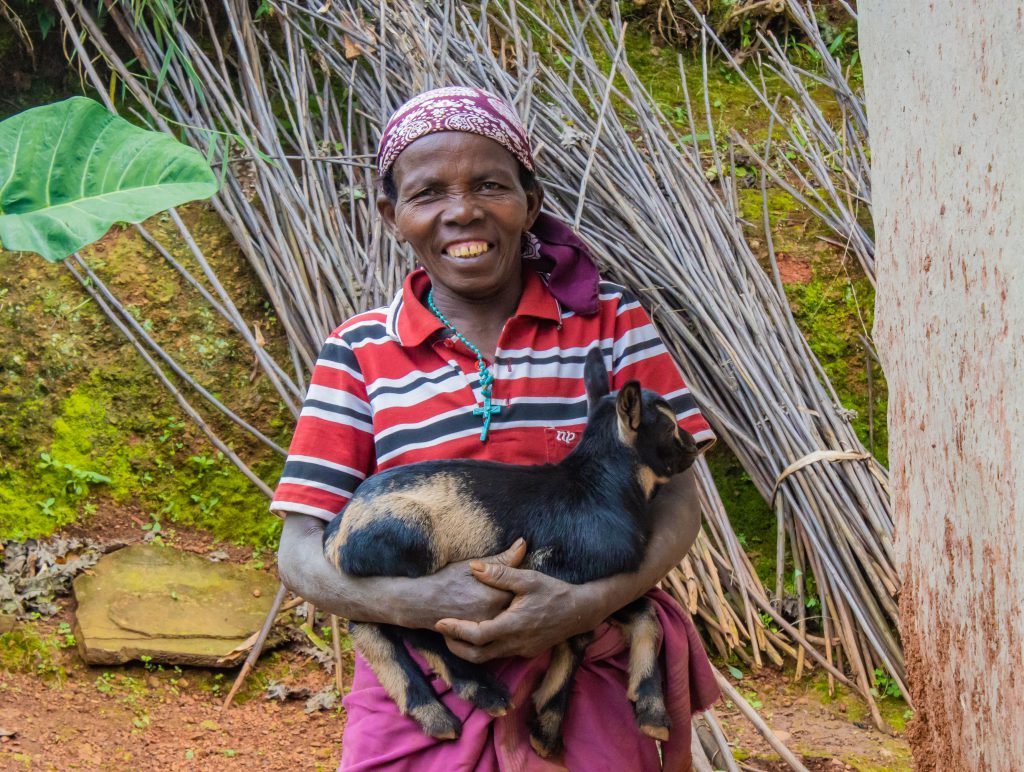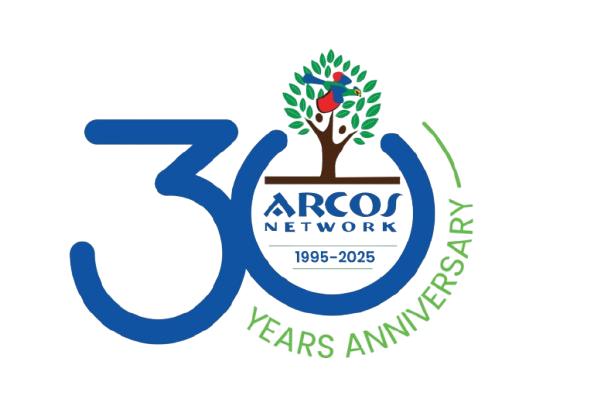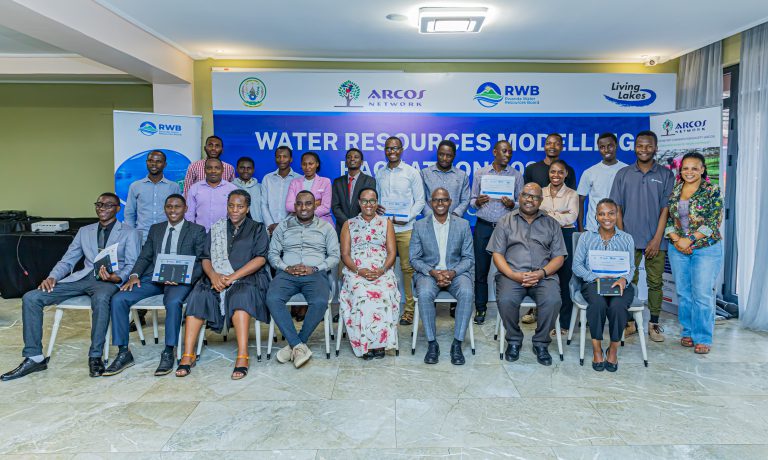In Rwanda’s Rulindo and Bugesera Districts, the Agroforestry for Livelihoods Project is making a tangible difference in the lives of its beneficiaries. Farmers like Jean de Dieu Twizeyimana from Bugesera District attest to the project’s impact, noting increased yields and improved livelihoods.
“We are shaded with trees bearing fruits every season while feeding our animals and yielding more from the farm.” stated Jean de Dieu
This project, a collaborative effort led by the Albertine Rift Conservation Society (ARCOS Network) and Livelihoods Funds, the 20-year project was launched in 2020. With a target of embarking on board 30,000 households, today the project is rewriting the story of resilience and sustainability with 24,600 households.

“We didn’t know that there are specific trees that can be mixed with crops. Since ARCOS started working with us, we were trained and introduced to trees that can be grown around or among crops,” testified Claudine Uwizeyimana, a farmer from Rulindo district.
“The Agroforestry for Livelihoods seeks to contribute climate change mitigation, enhance soil fertility through the promotion of Sustainable Agriculture Land Management Practices (SALM) and improve livelihoods through supporting a number of community-led micro projects. Over the next 20 years, it is projected to sequester 2-3.5 million tons of CO2 equivalents.” The project manager, Jean Paul Kubwimana, underscored its commitment to sustainable transformation.
In Rulindo District, particularly in the Cyohoha, Muyanza, and Yanze landscapes, 11,103 hectares have been dedicated to ecosystem restoration. Similarly, Bugesera District, an agrosystem spanning on 4,106 hectares, reflects a commitment to sustainable transformation. Farmers in Bugesera District, like Jean De Dieu Twizeyimana, testify to the benefits, noting increased yields and improved livelihoods.
“A few years back, Bugesera, our region, grappled with drought primarily because of a scarcity of trees. However, ever since our collaboration with ARCOS began, we have been encouraged to plant and nurture trees. As you can witness first-hand, we no longer encounter difficulties; rainfall is consistent, and our harvests thrive.”
Myaka Pierre, another beneficiary of the project, reflects on how community livelihoods improvement were facilitated by the project
“We’re preparing to secure another loan for the second time. In our first venture, we ventured into tomato farming, and it proved successful. With an initial investment of Rwf 800,000, we yielded Rwf 1,500,000 in just one season. This enabled members of our community to afford school fees for their children. Moreover, we were among the first in our neighborhood to enroll in health insurance, thanks to the Umusave Community Fund.”

Remarkably, market access has also improved, enabling farmers in Rulindo District to sell their surplus produce. What were once degraded landscapes now stand as symbols of sustainable finance mechanisms, thriving ecosystems, and empowered communities.
The Agroforestry for Livelihoods Project represents more than a mere endeavor; it embodies a narrative of resilience, sustainability, and transformation. By planting trees, it plants hope, cultivates change, and sows the seeds of a brighter, more sustainable future for Rwanda’ smallholder farmers.



